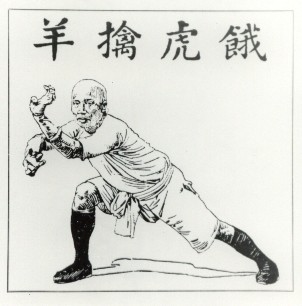Source.
In England a long time ago…

England, apparently a long time ago.
Servants were required to work on Christmas. They were responsible for making the holiday run smoothly for wealthy landowners. They were allowed to take leave on December 26th and visit their families. The employers gave each servant a box containing gifts and bonuses. In addition, around the 800s' churches opened their alms boxes (boxes where people place monetary donations) and distributed the contents to poor.
In England today…

England, today. Well, not TODAY today... But today. As in, some day recently. Like yesterday. I guess
Few people have servants but the custom of giving gifts or money to those who provide service continues. It is also popular to visit grandparents and shop (the after Christmas discounts begin). Many people get the day off from work. Watching sports especially horse races is also a popular activity. Boxing Day is also celebrated in places where the English have settled or have influence like Australia, New Zealand, Canada, and Scotland. Some places observe Boxing Day on December 26th and some celebrate it on the first weekday following Christmas, so, if Christmas falls on Friday or Saturday Boxing Day would be on the following Monday.
Now, the actual origin of this holiday is debatable and has been debated, one idea being more popular than the other at a given time.
Of course, the article actually neglects to mention more than one possible origin for the holiday, so some investigative journalism was necessary...
Perhaps the alternative was named for the need to get rid of the wrapping that presents came in at Christmas?
Nope.
But Snopes DID shed some light on viable origins:
Quote
Quote
Quote
This dual-versioned theory melds the two previous ones together into a new form — namely, the employer who was obligated to hand out something on Boxing Day, but this time to recipients who were not working the land for him and thus were not dependent on him for all they wore and ate. The "box" thus becomes something beyond ordinary compensation (in a way goods to landed serfs was not), yet it's also not a gift in that there's nothing voluntary about it. Under this theory, the boxes are an early form of Christmas bonus, something employees see as their entitlement.
Quote
More elaborate versions of this origin involve boxes kept on sailing ships:
The title has been derived by some, from the box which was kept on board of every vessel that sailed upon a distant voyage, for the reception of donations to the priest — who, in return, was expected to offer masses for the safety of the expedition, to the particular saint having charge of the ship — and above all, of the box. The box was not to be opened until the return of the vessel; and we can conceive that, in cases where the mariners had had a perilous time of it, this casket would be found to enclose a tolerable offering. The mass was at that time called Christmass, and the boxes kept to pay for it were, of course, called Christmass-boxes. The poor, amongst those who had an interest in the fate of these ships, or of those who sailed in them, were in the habit of begging money from the rich, that they might contribute to the mass boxes; and hence the title which has descended to our day, giving to the anniversary of St Stephen's martyrdom the title of Christmas-boxing day, and, by corruption, its present popular one of Boxing Day.
Whichever theory one chooses to back, the one thread common to all is the theme of one-way provision to those not inhabiting the same social level. As mentioned previously, equals exchanged gifts on Christmas Day or before, but lessers (be they tradespeople, employees, servants, serfs, or the generic "poor") received their "boxes" on the day after. It is to be noted that the social superiors did not receive anything back from those they played Lord Bountiful to: a gift in return would have been seen as a presumptuous act of laying claim to equality, the very thing Boxing Day was an entrenched bastion against. Boxing Day was, after all, about preserving class lines.
So basically, no matter the history, this holiday is a very good reason that if you must give a belated Christmas present, do not give it on December 26 or the first weekday after the 25th. To do so would be profoundly unamerican, and I might just have to confiscate the gift. Communists. BAH.
 Help
Help




 MultiQuote
MultiQuote















